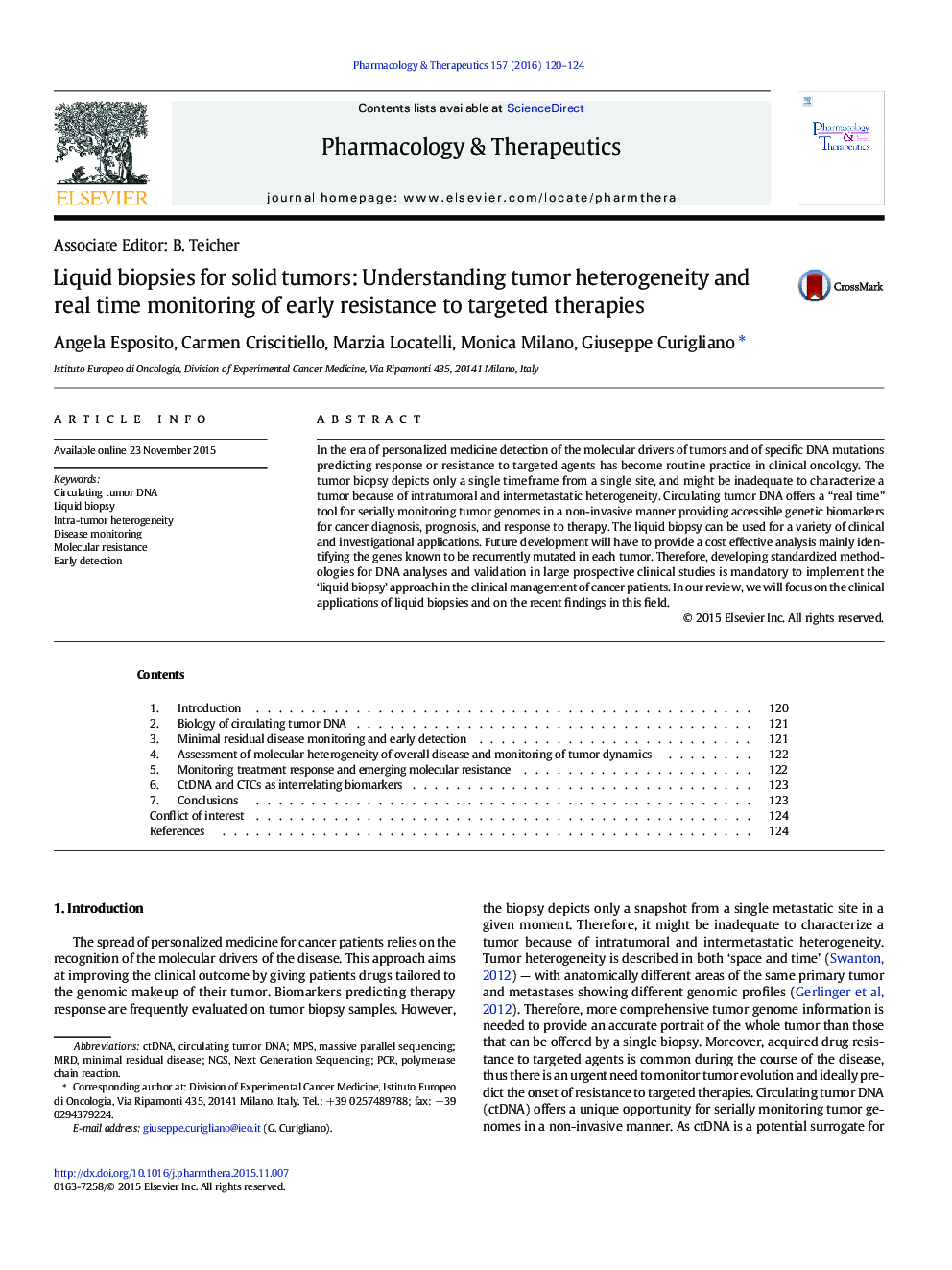| Article ID | Journal | Published Year | Pages | File Type |
|---|---|---|---|---|
| 2563490 | Pharmacology & Therapeutics | 2016 | 5 Pages |
In the era of personalized medicine detection of the molecular drivers of tumors and of specific DNA mutations predicting response or resistance to targeted agents has become routine practice in clinical oncology. The tumor biopsy depicts only a single timeframe from a single site, and might be inadequate to characterize a tumor because of intratumoral and intermetastatic heterogeneity. Circulating tumor DNA offers a “real time” tool for serially monitoring tumor genomes in a non-invasive manner providing accessible genetic biomarkers for cancer diagnosis, prognosis, and response to therapy. The liquid biopsy can be used for a variety of clinical and investigational applications. Future development will have to provide a cost effective analysis mainly identifying the genes known to be recurrently mutated in each tumor. Therefore, developing standardized methodologies for DNA analyses and validation in large prospective clinical studies is mandatory to implement the ‘liquid biopsy’ approach in the clinical management of cancer patients. In our review, we will focus on the clinical applications of liquid biopsies and on the recent findings in this field.
